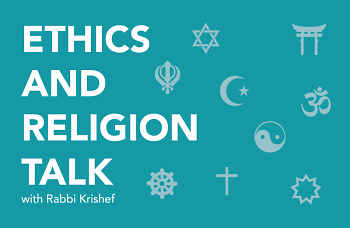Rev. Ray Lanning, a retired minister of the Reformed Presbyterian Church of North America, responds:
"Presbyterianism teaches that “God is a Spirit, in and of Himself infinite in being, glory, blessedness, and perfection” (Larger Catechism. Q. 7). As the uncreated Creator, “God created all the angels [as] spirits, immortal, holy, excelling in knowledge, mighty in power, to execute His commandments, and to praise His name” (LC, Q. 16). So we know of at least two kinds of “ghostly” or spiritual beings—God and the holy angels who serve Him. Some of the angels did not continue in God’s service, but fell into sin and damnation, so we believe in the existence of the devil and his cohorts. We also believe that the spirits or souls of Christians at death are freed from their bodies, “made perfect in holiness, and received into the highest heavens, where they behold the face of God in light and glory, awaiting the full redemption of their bodies,” that is, at the last day when the dead shall rise again.
So Presbyterians believe in a large and varied population of “ghosts” or spirits, not as a mere possibility but as part of created reality. Whether it is possible for the souls of deceased persons to remain on earth to “haunt” places or people is only a matter of speculation. Whether the living can communicate with the spirits of deceased persons, much less enlist their guidance or aid, is also a matter upon which God’s Word sheds very little light. Attempts to do so are forbidden in God’s law."
Fred Stella, the Pracharak (Outreach Minister) for the West Michigan Hindu Temple, responds:
"Hindu scriptures do acknowledge the existence of souls that have not yet fully left this earthly plane. They are referred to as Bhutas. The reasons for their existence are varied. Often, it indicates that perhaps there was some serious unfinished business here. As with other traditional ideas about ghosts, there exists a belief that there are both benevolent and malevolent spirits. All this said, I’ve never heard or read from Hindu teachers anything other than to avoid focus of this phenomenon. Those who pay inordinate attention to Bhutas risk delaying their spiritual progress."
Father Kevin Niehoff, O.P., a Dominican priest who serves as Judicial Vicar, Diocese of Grand Rapids, responds:
"Yes, ghosts are possible. In Roman Catholic tradition, the Holy Ghost is the Holy Spirit. Other words for ghosts include spirit or apparition.
Jesus appeared to the disciples after he rose from the dead. There are numerous references to apparitions, specifically of the Blessed Virgin Mary, who appeared in places like Lourdes, France, Tepeyac Hill in Mexico, and Fatima, Portugal. Many of us may have experiences of loved ones who have passed into eternal life coming back and visiting in dreams or other forms.
One must always be careful when dealing with the spirit world. Relationships with God and those who have gone before us marked with the sign of faith are not parlor games. If you think or feel you have encountered a ghost or spirit or have had an apparition, please see your imam, minister, priest or rabbi. They will be able to help you discern the experience."
The Reverend Colleen Squires, minister at All Souls Community Church of West Michigan, a Unitarian Universalist Congregation, responds:
"Unitarian Universalism says little to nothing about ghosts. If an individual UUs believes in ghosts that is their right to do so but most of us do not believe in them."
My response:
"The Hebrew Bible, somewhat reluctantly, acknowledges the possibility of ghosts in a scene in which King Saul visits the Witch of Endor in order to bring up the ghost of the prophet Samuel to find out why God has turned away from him. He does this even though Leviticus 19.31 and Deuteronomy 18.11 agree that ghosts are real and warn him (and us) not to consult with them. Jewish folklore believes that the souls of the dead sometimes get stuck in this world and cause mischief by entering the body of a living person.
Judaism would rather us believe that there is one God, creator of all. God is both the source of wisdom and the source of evil. Thus, Saul finds that appealing to Samuel’s ghost does not yield a way back into God’s favor.
For all who celebrate Halloween, please do so safely. Celebrate and honor the day as a day to gift (or be gifted) treats in the spirit of building community and bonding with your neighbors, and not a day to be destructive. I expect to see a ton of Barbies (TM) running around with my personal favorite, Spiderman, although Frosty the Snowman and Winter Sports Barbie might be more appropriate this year!"
This column answers questions of Ethics and Religion by submitting them to a multi-faith panel of spiritual leaders in the Grand Rapids area. We’d love to hear about the ordinary ethical questions that come up in the course of your day as well as any questions of religion that you’ve wondered about. Tell us how you resolved an ethical dilemma and see how members of the Ethics and Religion Talk panel would have handled the same situation. Please send your questions to [email protected].
The Rapidian, a program of the 501(c)3 nonprofit Community Media Center, relies on the community’s support to help cover the cost of training reporters and publishing content.
We need your help.
If each of our readers and content creators who values this community platform help support its creation and maintenance, The Rapidian can continue to educate and facilitate a conversation around issues for years to come.
Please support The Rapidian and make a contribution today.
